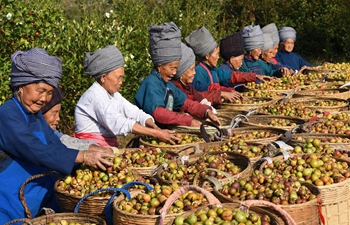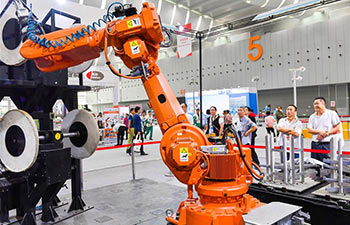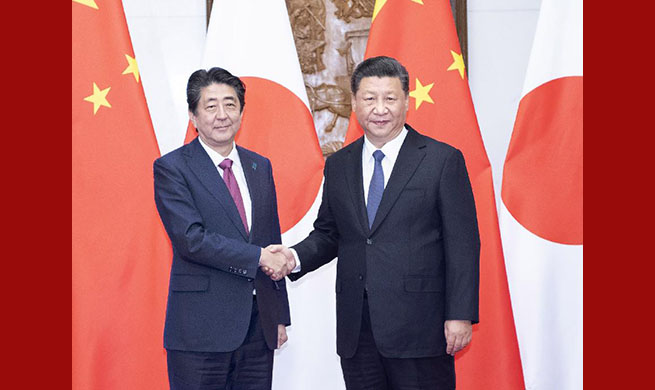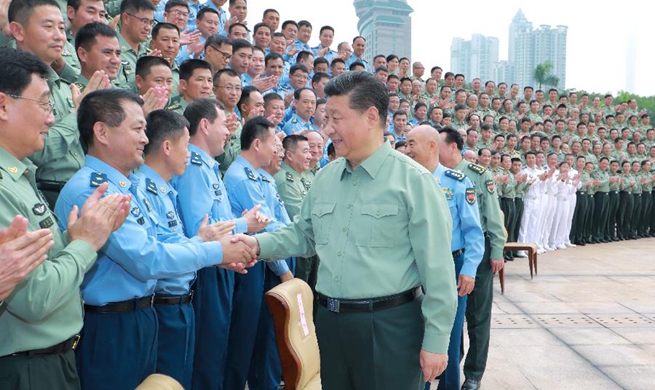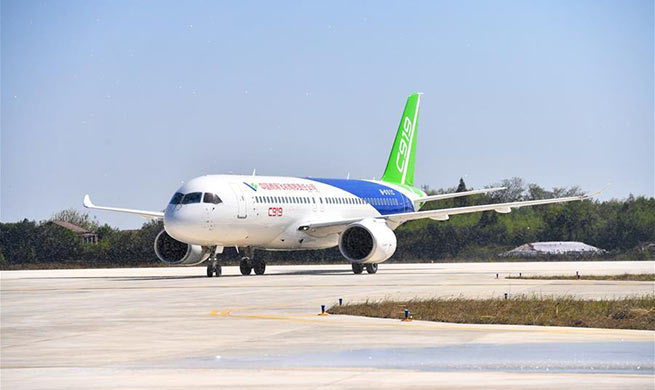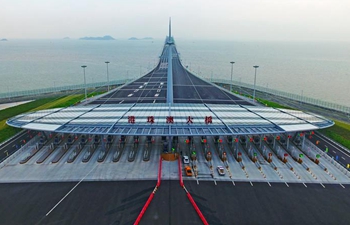GENEVA, Oct. 27 (Xinhua) -- World political and corporate leaders highlighted the multilateralism and cooperation approach to cope with the globalization backlash and its threat to the sustainable development goals (SDGs) during the World Investment Forum (WIF) in Geneva this week.
As a high-level biennial conference organized by the United Nations Conference on Trade and Development (UNCTAD) for addressing investment-related issues, the 2018 WIF attracted 6,000 participants, 12 heads of state and more than 50 CEOs of private companies.
For UNCTAD Secretary-General Mukhisa Kituyi, the pace of innovation and technological change is altering the way in which goods and services are designed, produced, transported and consumed globally, and this will have profound and far-reaching implications for trade, investment and development.
"We are seeking to counter uncertainties and an inward-looking perspective, to refocus political attention and corporate leadership on the opportunities rather than the pitfalls that the global economy can offer," said Kituyi.
Milo Djukanovic, president of Montenegro, said that Montenegro was a team player in the multilateral system and committed to building a progressive and transparent investment climate based on clear rules.
This approach was bearing fruit, with 5.5 billion U.S. dollars invested in Southeast Europe, including Montenegro, in 2017, he said.
He also told the audience that his country has "definitely" benefited from Chinese investment, adding that the European Union (EU) should focus its efforts to help the Southeast Europe develop its infrastructure.
Calling that huge highway project with Chinese companies "the most expensive infrastructure project that Montenegro has ever had", Djukanovic refuted criticism and suspicion on Chinese participation in the project, underlining that it is impossible for his own country to implement such a project with national budget.
Paul Bulcke, chair of Nestle, also defended globalization by saying that "an integrated world is better than a disintegrated world," while it was clear not everyone had benefitted, the project of free trade and globalization "was not done yet".
Nestle had 450 factories in almost 100 countries and regions. It was making billion-dollar investments all over the developing world, with a commitment to creating shared value, he underscored.
Hage Geingob, president of the Republic of Namibia, echoed the concerns of his fellow leaders and made a special appeal on behalf of African countries, particularly concerning investment in infrastructure.
Inclusivity spelt peace and prosperity, and the reverse was true, he said, leading to the inexorable conclusion that multilateralism, midwifed by the United Nations, was the only course his country would pursue.
Kocho Angjushev, Deputy Prime Minister of the Former Yugoslav Republic of Macedonia, meanwhile said his government was committed to improving trade and infrastructure links with Europe and the world.
The World Federation of Exchanges' chief executive officer, Nandini Sukumar, said that her members -- stock, commodities and derivatives exchanges -- was home to 45,000 companies which were participants in the "real economy".
High on the agenda for international investors were regulatory coherence across borders, now under threat from nationalism, cybersecurity and systemic risk, she said.
Roland Chalons-Browne, Siemens Financial Services chief executive officer, said that tit-for-tat tariff tensions were not helping the investment climate, and investing in developing countries was critical not least to create opportunities for people who might otherwise migrate to find better conditions elsewhere.
The President of the UN General Assembly Maria Fernanda Espinosa highlighted the multilateralism as a way to solve global issues such as climate change, the fight against tuberculosis and HIV/Aids, natural disasters and disarmament or migration.
She stressed that her Presidency is very strongly guided by "a commitment to multilateralism".
"I think that the need to strengthen multilateralism, to make it worthwhile, to make it more relevant, more efficient, to deliver more and better, is much needed nowadays," she noted.
Botswana's President Mokgweetsi Masisi said that with the proactive involvement of multilateral institutions, "the attainment of the Sustainable Development Goals is not as far-fetched as we might imagine".
Lesotho's Prime Minister Motsoahae Thomas Thabane said his country was "open for business" and enhancing its institutional and regulatory frameworks to make it easy to invest there.
"As a landlocked country, investment is not an option but a must for sustainable economic growth," he said.
World Economic Forum President Borge Brende said that since 1990, global GDP had doubled, and the proportion of the Planet's population living in extreme poverty had dropped from 42 percent to 12 percent, which was an effect of globalization and trade.
"I think it's a bad idea to stop globalization. But I think we should improve it. We should make sure that globalization is more equitable and fair, job-creating, sustainable, and that it fights inequalities," he said.





